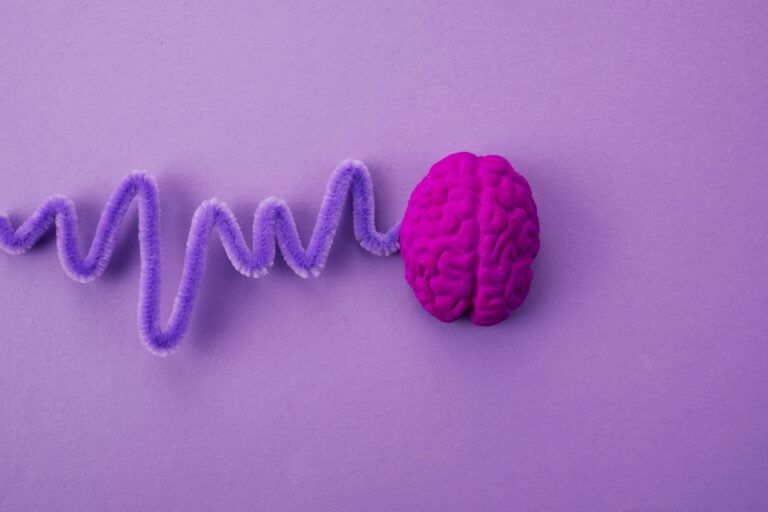Epilepsy is a complex neurological condition that affects millions worldwide, characterized by the tendency to have recurrent seizures. These seizures are the result of sudden, excessive electrical discharges in a group of brain cells. Different factors, known as triggers, can provoke these discharges, making the management of these triggers a critical aspect of living with epilepsy. In our comprehensive guide, we delve into the intricacies of epilepsy, identify common triggers that individuals with epilepsy may encounter, and provide actionable strategies to manage these triggers effectively. Our goal is to equip those affected by epilepsy with the knowledge and tools they need to navigate their condition more effectively, potentially reducing the frequency and intensity of seizures and improving their overall quality of life.
What is Epilepsy?
Epilepsy is not a single disease but a spectrum of disorders characterized by a chronic predisposition to generate epileptic seizures. The brain is a complex organ, with different parts responsible for various functions, including movement, sensation, and cognition. When the normal pattern of neuronal activity is disrupted, it can lead to the symptoms observed during a seizure. Depending on the region of the brain affected, seizures can range from brief lapses of attention or muscle jerks (focal seizures) to widespread convulsions affecting the whole body (generalized seizures).
The causes of epilepsy are diverse. For some individuals, epilepsy is the result of genetic factors, making them more prone to seizures. Others may develop epilepsy as a consequence of brain injury, such as trauma, infection, stroke, or tumors. However, in many cases, the exact cause remains unknown, termed idiopathic epilepsy.
Common Triggers for Epileptic Seizures
Identifying and managing triggers can significantly help control seizures for many living with epilepsy. However, triggers can vary widely among individuals. Some of the most common seizure triggers include:
Stress:
Stress is recognized as a significant trigger for seizures in many individuals living with epilepsy. The relationship between stress and seizures is complex, involving both physiological and psychological components. Stress can lead to an increase in the release of certain hormones in the body, such as cortisol, which may alter the excitability of neurons in the brain, thus increasing the likelihood of a seizure. Additionally, the psychological aspects of stress, including anxiety and emotional distress, can also contribute to seizure susceptibility. These effects are thought to be mediated through the brain’s emotional regulation centers, further influencing neuronal activity. Managing stress through various strategies such as relaxation techniques, regular exercise, adequate sleep, and, if necessary, psychological counseling, can be an effective component of a comprehensive epilepsy management plan. By addressing stress, individuals with epilepsy may experience a reduction in seizure frequency and intensity, highlighting the importance of stress management in overall epilepsy care.
Sleep Deprivation:

Sleep deprivation is a well-documented trigger for seizures among individuals with epilepsy, exacerbating the frequency and intensity of epileptic episodes. The mechanism behind this trigger lies in the disruption of normal sleep patterns, which can significantly affect brain activity. Sleep plays a crucial role in regulating neurotransmitters and maintaining the balance between excitatory and inhibitory signals in the brain. When sleep is compromised, this balance is disturbed, potentially lowering the seizure threshold and making the brain more susceptible to seizures. Furthermore, specific stages of sleep are associated with different patterns of brain activity, and disruptions in these patterns can also provoke seizures. For example, transitions between sleep stages, particularly from wakefulness to the first stage of sleep, can trigger seizures in susceptible individuals. Consequently, ensuring consistent and adequate sleep is paramount for individuals with epilepsy, as it can help stabilize brain activity and reduce the risk of seizure occurrence. Strategies to improve sleep hygiene, such as maintaining a regular sleep schedule, creating a comfortable sleep environment, and avoiding caffeine or electronic screens before bedtime, are essential components of managing epilepsy effectively.
Flashing Lights and Patterns:
Flashing lights, a phenomenon known as photosensitivity, can trigger seizures in a subset of individuals with epilepsy, particularly those with a condition known as photosensitive epilepsy. This type of seizure trigger is linked to specific patterns or frequencies of visual stimuli, including flickering or flashing lights and contrasting patterns of light and dark. The mechanism behind photosensitive seizures involves the visual cortex of the brain, where such stimuli can lead to abnormal electrical activity that may spread to other parts of the brain, culminating in a seizure. The response to these visual triggers can vary greatly among individuals, with some being sensitive to certain frequencies or types of light, such as the flashing of a strobe light or the rapid succession of images on a television screen. To mitigate the risk of photosensitive seizures, individuals with this sensitivity are advised to avoid exposure to potential triggers. This can include taking precautions such as wearing sunglasses outdoors, using anti-glare screens on electronic devices, adjusting the refresh rate on computer monitors, or simply avoiding situations where exposure to flashing lights is likely. Managing exposure to these triggers is an essential aspect of care for those with photosensitive epilepsy, helping to reduce the occurrence of seizures triggered by visual stimuli.
Alcohol and Drugs:

Alcohol and recreational drugs are well-recognized triggers for seizures in individuals with epilepsy, as well as in those without any prior history of the condition. The effect of alcohol on seizure susceptibility is particularly complex. In the short term, excessive alcohol consumption can lead to disruptions in the normal balance of neurotransmitters in the brain, increasing the risk of seizures. Moreover, the withdrawal phase after heavy drinking can be a particularly vulnerable time for seizure occurrence due to the rebound excitability in the brain as it attempts to restore balance. Similarly, recreational drugs, including stimulants such as cocaine and amphetamines, can provoke seizures by increasing neuronal activity and disrupting the delicate balance of excitatory and inhibitory signals in the brain. Even substances perceived as less harmful, like nicotine and caffeine, can lower the seizure threshold in sensitive individuals. The use of these substances can interfere with the effectiveness of antiepileptic medications, further exacerbating the risk. For individuals with epilepsy, avoiding or minimizing the consumption of alcohol and steering clear of recreational drugs are crucial steps in managing their condition and reducing the frequency of seizures. This approach, coupled with adherence to prescribed epilepsy treatments, can significantly improve seizure control and overall quality of life.
Missed Medication:
Missed medication is a significant and preventable trigger for seizures in individuals with epilepsy. Antiepileptic drugs (AEDs) work by stabilizing the electrical activity in the brain, thus preventing seizures. These medications need to be maintained at a certain level in the bloodstream to be effective. Skipping doses, taking medication irregularly, or abruptly stopping medication can lead to a decrease in the drug’s blood level, disrupting the brain’s electrical balance and increasing the risk of seizures. The importance of adherence to prescribed medication schedules cannot be overstressed; even a single missed dose can be enough to trigger a seizure in some individuals. This is particularly critical for those who have achieved good seizure control with medication, as nonadherence can lead to a recurrence of seizures, which were previously well managed.
Nutritional Deficiencies and Diet:
Nutritional deficiencies and certain dietary patterns can play a significant role in triggering seizures in individuals with epilepsy. Essential nutrients, including vitamins and minerals such as magnesium, vitamin B6, and vitamin D, are crucial for maintaining the proper functioning of the nervous system and stabilizing neuronal activity. Deficiencies in these nutrients can disrupt the delicate balance of neurotransmitters and increase the brain’s susceptibility to seizures. Furthermore, specific dietary patterns, particularly those involving irregular meal timings or prolonged periods of fasting, can lead to fluctuations in blood sugar levels, which may also provoke seizures. The ketogenic diet, a high-fat, low-carbohydrate diet designed to mimic the fasting state, has been found to be particularly effective in reducing seizures in some individuals with epilepsy, highlighting the impact of dietary factors on seizure control. This diet works by altering the body’s energy metabolism, which can help to stabilize neuronal activity and reduce seizure frequency. However, it should be approached with caution and under strict medical supervision due to potential nutritional deficiencies and other side effects. Addressing nutritional deficiencies, maintaining a balanced diet, and exploring medically supervised dietary interventions can thus be an essential part of a comprehensive epilepsy management plan, offering an additional tool for reducing seizures alongside medication and other treatments.
Managing Epilepsy Triggers
While not all seizures can be prevented, managing triggers can reduce their frequency and severity. Here are some strategies:
- Stress Management: Techniques such as mindfulness, yoga, and regular exercise can help manage stress. Cognitive-behavioral therapy (CBT) is also effective for some individuals.
- Maintain a Regular Sleep Schedule: Ensuring adequate and consistent sleep can help prevent seizures triggered by fatigue.
- Avoid Known Visual Triggers: Those with photosensitive epilepsy should avoid exposure to flashing lights and certain visual patterns. Screen filters and wearing sunglasses can help.
- Moderate Alcohol and Avoid Recreational Drugs: Staying within recommended guidelines for alcohol and avoiding recreational drugs can reduce seizure risk.
- Stay Healthy: Regular check-ups, staying hydrated, and managing fever or illnesses promptly can help control seizures related to health conditions.
- Adherence to Medication: Taking epilepsy medications as prescribed is crucial. Use reminders or a pill organizer to help maintain a consistent medication schedule.
- Dietary Considerations: Following a balanced diet and avoiding long periods without eating can help. Some people may benefit from specific diets, such as the ketogenic diet, under medical supervision.
Conclusion
Living with epilepsy involves understanding the condition, identifying personal triggers, and taking steps to manage those triggers. While epilepsy affects individuals differently, a proactive approach to trigger management, combined with medical treatment, can lead to improved seizure control and quality of life. Collaboration with healthcare providers, including neurologists and epilepsy specialists, is essential for developing an effective management plan tailored to individual needs.

Dr. Kashouty, a diplomate of the American Board of Psychiatry and Neurology (ABPN), practices general neurology with fellowship trained specialization in clinical neurophysiology. Dr. Kashouty finds the form and function of the nerves and muscles the most interesting part of neurology, which is what led him to specialize in neurophysiology with more emphasis on neuromuscular conditions. He treats all neurological diseases, but his main focus is to treat and manage headaches, movement disorders and neuromuscular diseases.




